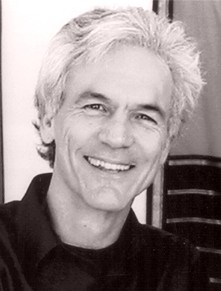A Quote by Daniel Goleman
All the classical meditation traditions, in one way or another, stress nonattachment to the self as a goal of practice. Oddly, this dimension is largely ignored in scientific research, which tends to focus on health and other such benefits. I suppose the difference has to do with the contrast in views of the self from the spiritual and scientific perspectives. Scientists value the self; spiritual traditions have another perspective.
Related Quotes
Over time, years of meditation gave me glimpses of the interconnectedness and interdependence of all life. I experienced that on one level we are alone, separate, apart from everyone and everything; on another level, we are the Self in different disguises, different names and forms, a part of everyone and everything. This experience of interconnectedness is part of spiritual traditions and the perennial wisdom in virtually all religions and cultures.
Concentration is not thinking of one thing. On the contrary, it is excluding all thoughts, since all thoughts obstruct the sense of one's true being. All efforts are to be directed simply to removing the veil of ignorance. Concentrating the mind solely on the Self will lead to happiness or bliss. Drawing in the thoughts, restraining them and preventing them from straying outwards is called detachment (vairagya). Fixing them in the Self is spiritual practice (sadhana). Concentrating on the heart is the same as concentrating on the Self. Heart is another name for Self.
The creation story unfurling within the scientific enterprise provides the fundamental context, the fundamental arena of meaning, for all the peoples of the Earth. For the first time in human history, we can agree on the basic story of the galaxies, the stars, the planets, minerals, life forms, and human cultures. This story does not diminish the spiritual traditions of the classical or tribal periods of human history. Rather, the story provides the proper setting for the teachings of all traditions, showing the true magnitude of their central truths.
Love is about bottomless empathy, born out of the heart’s revelation that another person is every bit as real as you are. And this is why love, as I understand it, is always specific. Trying to love all of humanity may be a worthy endeavor, but, in a funny way, it keeps the focus on the self, on the self’s own moral or spiritual well-being. Whereas, to love a specific person, and to identify with his or her struggles and joys as if they were your own, you have to surrender some of your self.
Running is the classical road to self-consciousn ess, self-awareness and self-reliance. Independence is the outstanding characteristic of a runner. He learns the harsh reality of his physical and spiritual limitations when he runs. He learns that personal commitment, sacrifice and determination are his only means to betterment. Runners get promoted only through self-conquest.
The great scientific achievements are research programmes which can be evaluated in terms of progressive and degenerative problemshifts; and scientific revolutions consist of one research programme superceding (overtaking in progress) another. This methodology offers a new rational reconstruction of science.



































